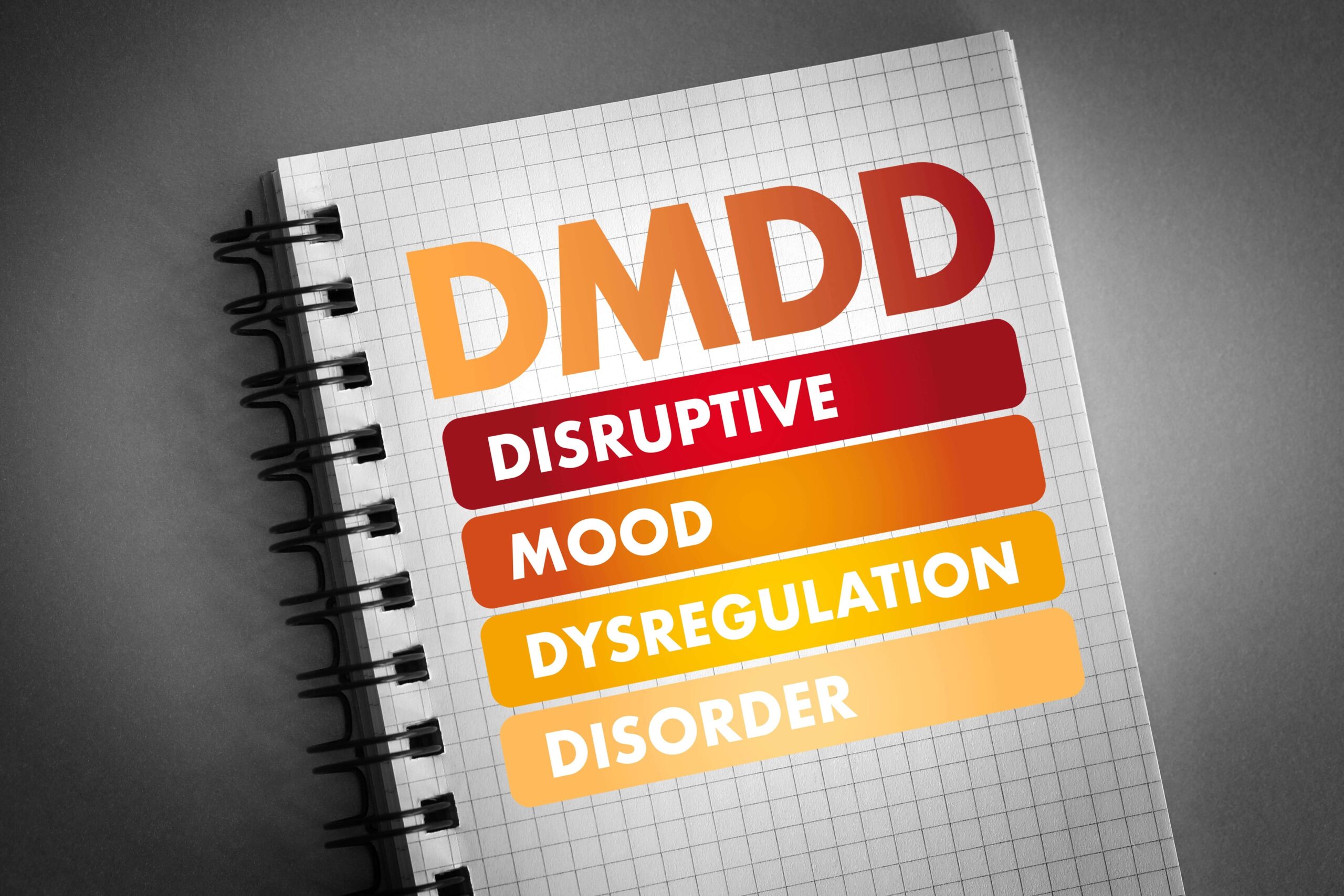Disruptive Mood Dysregulation Disorder (DMDD) is a childhood condition in which the child experiences extreme irritability and anger. They may also suffer from frequent, intense temper outbursts. A newer diagnosis for children, DMDD appeared for the first time in the 2013 edition of the Diagnostic and Statistical Manual of Mental Disorders (DSM-5). This condition is more than just moodiness in a child. DMDD can cause severe impairment for the child.
National Institute of Mental Health (NIMH) experts first developed the diagnosis to distinguish the condition more accurately from pediatric bipolar disorder. Before the DMDD diagnosis, many youths were diagnosed with bipolar disorder despite not experiencing the symptoms needed for diagnosing that condition.
Symptoms and Signs of DMDD
Because DMDD is a newer diagnosis, understanding and treatment for the condition continue to evolve. A child with DMDD will experience the following symptoms:
- Displaying an irritable or angry mood most of the day, for almost every day.
- Exhibiting severe temper outbursts (verbal or behavioral) at an average of three or more times per week that are out of keeping with the situation and the child’s developmental level.
- Having trouble functioning because of irritability or anger in more than multiple locations (e.g., home, school, with peers).
A child suspected of having DMDD must exhibit symptoms regularly for a year or more. Symptoms of DMDD typically appear before age 10, but the diagnosis is not given to anyone under the age of 6 or over 18.
DMDD differs from a child’s typical irritability that results from frustration. For instance, a child told to stop playing and do homework may whine a bit typically. If the child has DMDD, the same scenario may cause an intense reaction that involves shouting or even physical reactions like hitting.
Diagnosing DMDD
Because many DMDD symptoms are also found with other child psychiatric disorders, like depression, bipolar disorder, and oppositional defiant disorder, any child displaying these symptoms must receive a comprehensive evaluation by a mental health expert. A professional can also help determine if the child has a second disorder, such as problems with attention or anxiety, which has been found in some children with DMDD.
Parents who suspect their child may have DMDD should consult their child’s healthcare provider first. Share the symptoms that the child has been experiencing. The health care provider may do an evaluation or refer the child to a mental health professional with experience working with children.
Once an official diagnosis is determined, the therapist can devise a treatment plan to meet the child’s specific needs.
Treating DMDD
Since DMDD is a newer diagnosis, research on the condition is ongoing. Currently, the most successful treatment involves certain types of psychotherapy (“talk therapy”); if necessary, a doctor may include medications in a child’s treatment later. Some mental health experts may decide to do both therapy and medications to start. The proper treatment plan will depend on the individual child and their needs.
Within the psychological treatments, there are several options:
- Psychotherapy — Talk therapy options include cognitive behavioral therapy (CBT) and dialectical behavior therapy for children (DBT-C). Both help children and adolescents learn to regulate their thoughts and feelings, which results in outbursts. These therapies also teach coping mechanisms for controlling anger and other emotions.
- Parent training — Caregivers and parents learn more effective ways to respond to their child’s outbursts and the importance of being consistent with children with DMDD.
- Computer-based training — A newer approach, mobile and computer-based platforms are being studied to see how they may help address specific DMDD symptoms.
The U.S. Food and Drug Administration (FDA) currently approves no medication specifically to treat DMDD in children. If the health care provider includes medication in a child’s DMDD treatment, the most common medicines prescribed are stimulants, antidepressants, and atypical antipsychotics. All have been shown to help relieve many symptoms children experience with DMDD.
Because all medications can have side effects, parents must monitor their children and report any mental or physical changes that may be linked to a prescription to their healthcare professionals.
The symptoms a child with DMDD experiences may change as they get older. Where younger boys and girls may have tantrums and outbursts, older youth may turn inward and display signs of depression or anxiety. As a result, the treatment for DMDD can shift over time.
Help for Parents
Parents of kids with DMDD may feel stressed or overwhelmed. To help themselves, they can not only focus on creating a better environment for their child and determining the best treatment, but they can also do the following:
- Learn all they can about DMDD. Knowledge of the condition can help parents prepare and understand what their child is experiencing.
- Talk to the other adults in the child’s life. Teachers, doctors, therapists, and family members can all provide insights into helping the child manage their emotions so that they can thrive in school and beyond.
- Seek help and support. Parents and caregivers may benefit from resources and support, such as local chapters of the National Alliance on Mental Illness, the National Federation of Families for Children’s Mental Health, and Mental Health America, among others.
- Manage stress. Parents will likely experience stress and anxiety as they work to diagnose and treat their child’s DMDD correctly. It is essential to maintain their own health and well-being.
Researchers continue to study what causes DMDD, but there are methods children can learn to cope with the diagnosis to improve their quality of life, school performance, and family relationships.
A licensed mental health and substance abuse intensive outpatient program (IOP) in Scottsdale, Arizona, Rising Phoenix was created to offer a safe, welcoming, and nurturing environment where clients are not judged, but embraced, throughout their recovery process.

